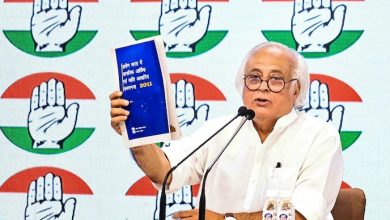Four-nation Axis to Play Vital Role in Copenhagen: Ramesh
Union Environment Minister Jairam Ramesh has said that a four-nation axis, which comprises India, China, Brazil and South Africa, has clearly emerged and play a vital part in giving shape to the outcome of the UN climate change meet that commenced in Copenhagen today.
He said that these four major economies have already formulated a draft for negotiating cuts in greenhouse gas emissions on the principle of differentiated responsibilities.
Dismissing the Danish and EU draft, Ramesh said that there was a great degree of convergence among the offers put forward by these nations for reduction in their carbon footprints.
“The Danish and EU drafts are clearly unacceptable to us,” he said.
The minister said that this four-nation axis would foil any attempt by the developed world to force such unrealistic proposals on the rest of the world.
He said that the new yardstick of carbon intensity is just another pillar but the ‘per capita argument persists’. India would not discard the proposition that mitigation action by each country should be commensurate with its per capita emission level.
Reports quoted senior officials at the ministry as saying that India was keenly aware of the developed world’s desire to isolate it at the meet and typecast it as a deal-breaker. They said that last week’s offer on cutting carbon intensity is a strategic move to pre-empt such efforts.
India is also planning a domestic law on mitigation action that would help it meet self-imposed targets. Such a law, reports said, would make the country’s negotiating position more unassailable.
Host Denmark had put out a draft last week exhorting all countries, irrespective of their levels of economic/social development or relative shares in the cumulative effect of historical CO2 emissions, to adopt 2020 as the year when their emissions would peak. Ramesh said that this proposal was shorn of any realistic estimates and violated the notion of differentiated responsibility.
Similarly, the EU draft imposes the onus of unrealistic spending demands on the developing world, thereby, undermining the solemn promise that the developed world would predominantly finance climate management efforts.
India would not commit to any binding emission cuts, the minister reiterated. The country offered to cut its carbon intensity – the quantum of emission per unit of GDP – by 20-25% from the 2005 level by 2020. This offer is voluntary and unilateral. China has also adopted the scale of emission intensity of GDP and offered a 40-45% cut.





